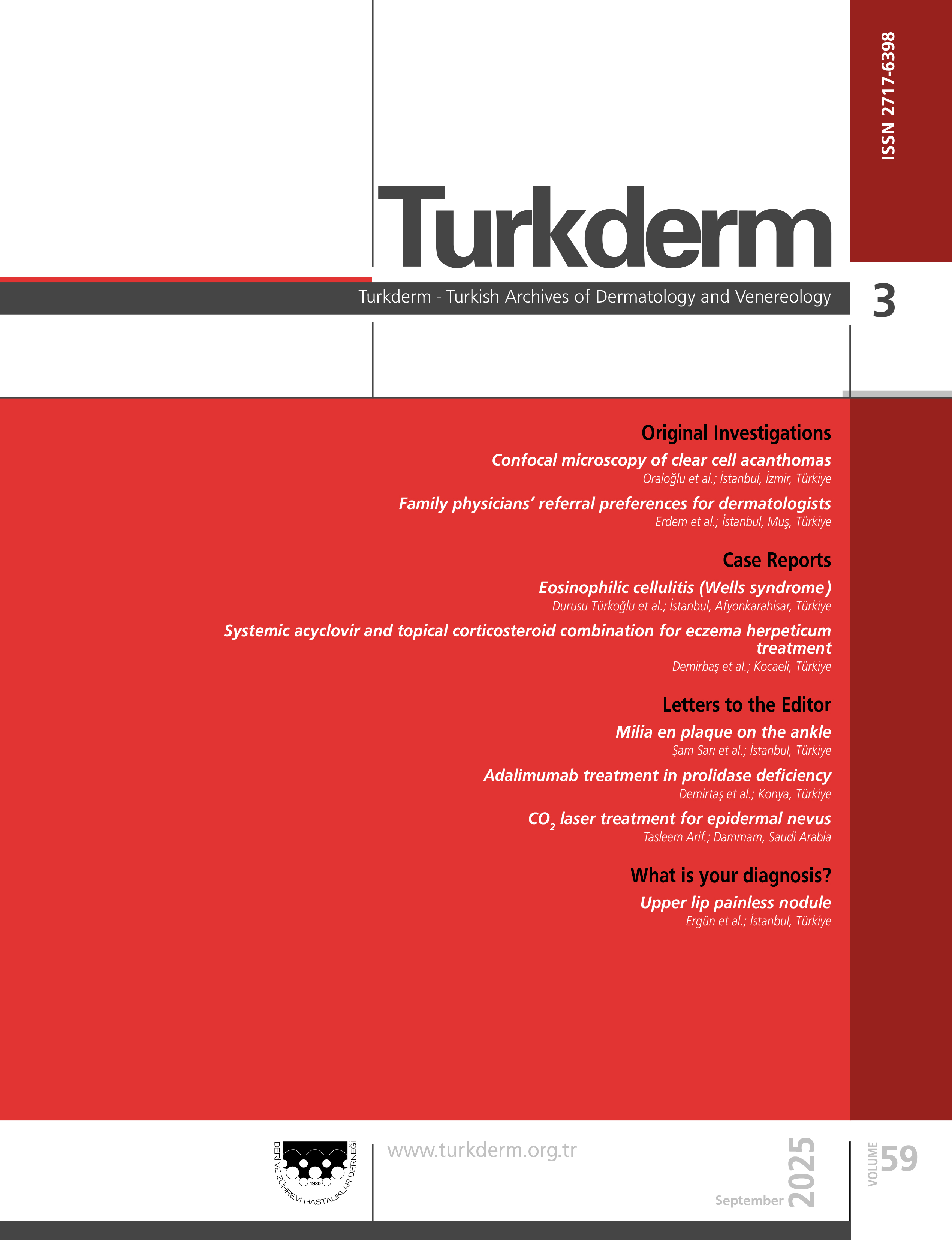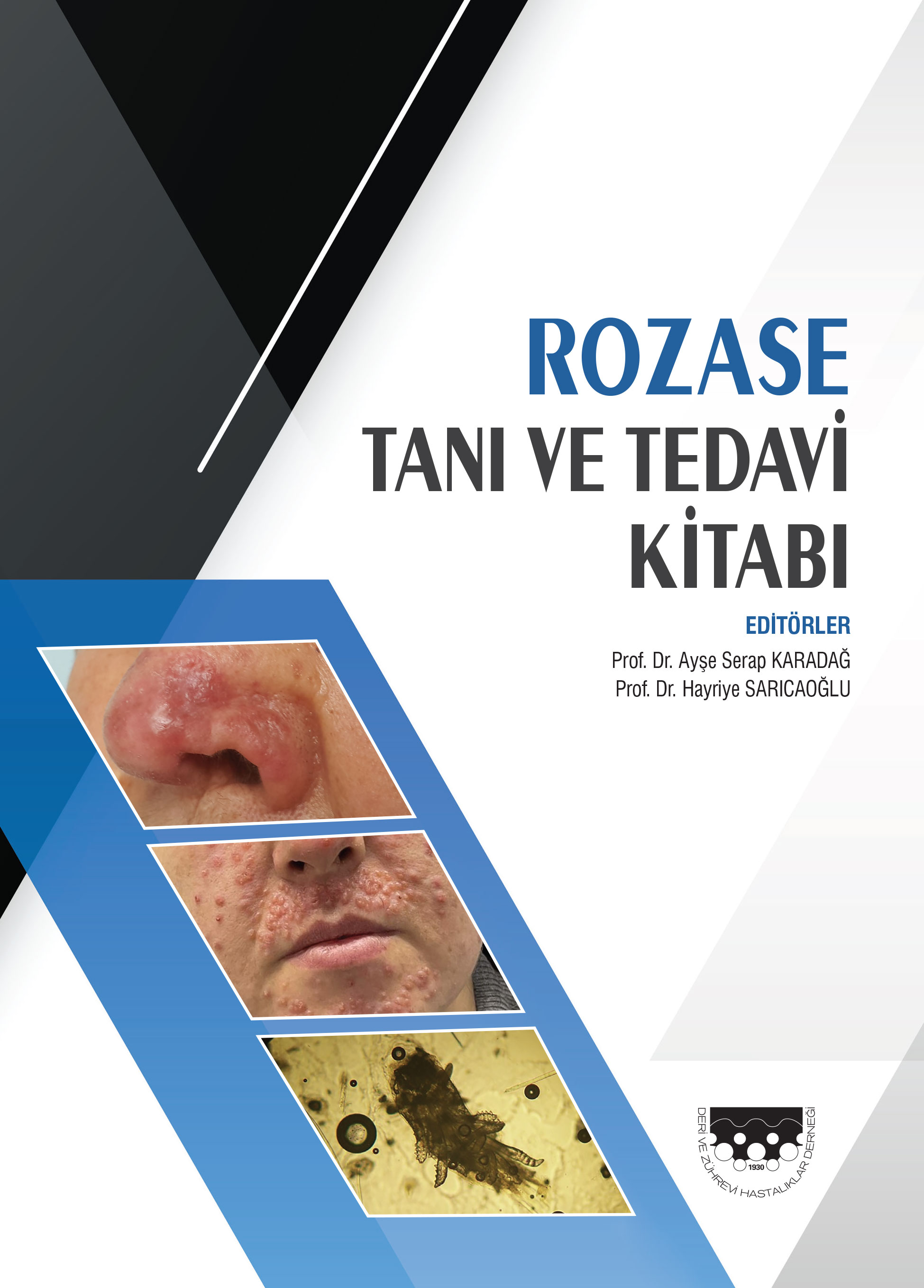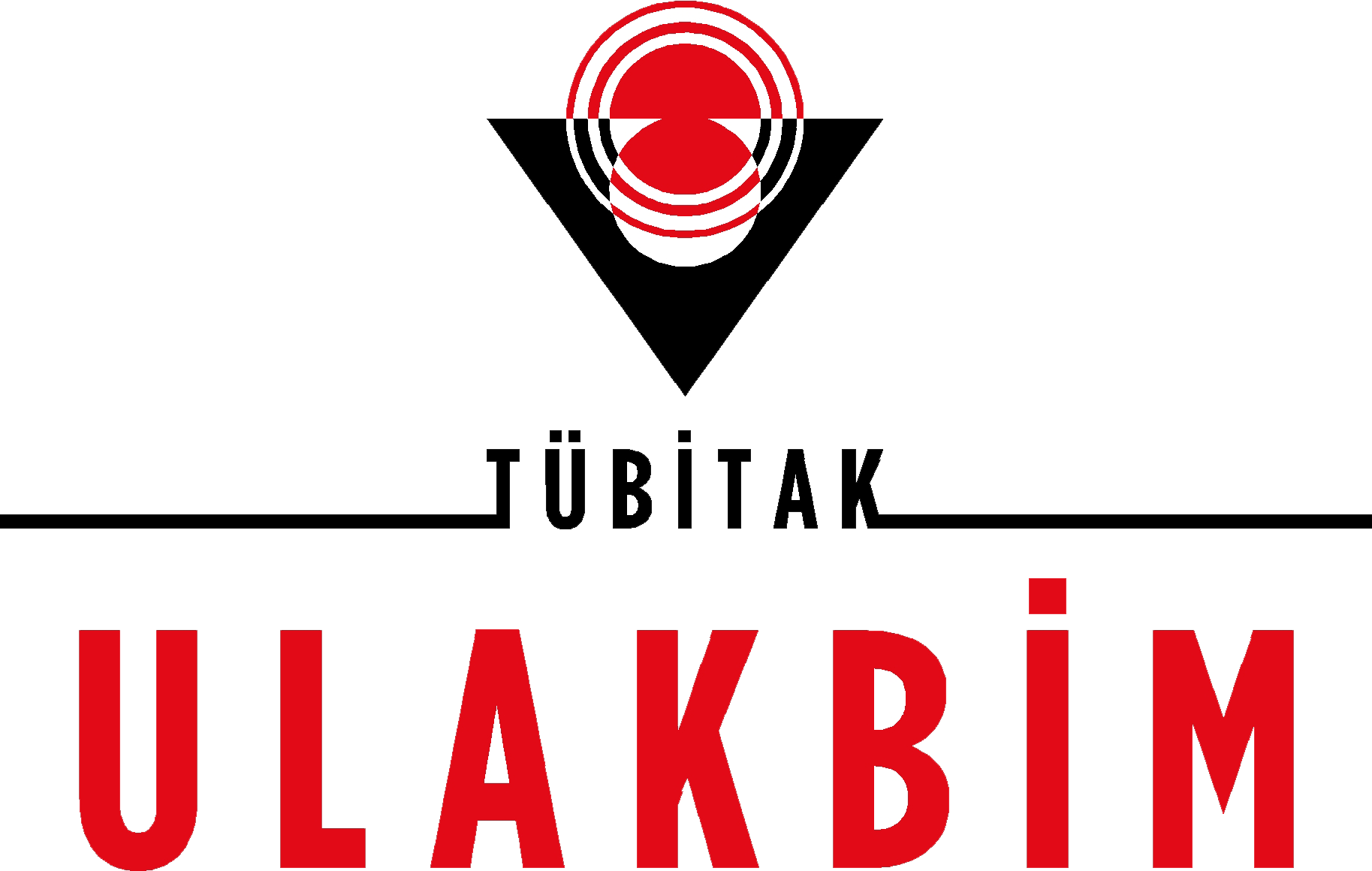The evaluation of ovarian reserve and menstrual irregularities in female patients treated with systemic isotretinoin
Pelin Can1, Emek Kocatürk1, Veli Mihmanlı2, Veysel Sucu3, Ece Nur Degirmentepe1, Utkan Kızıltaç11Prof. Dr. Cemil Taşcıoğlu City Hospital, Clinic of Dermatology, İstanbul, Turkey2Prof. Dr. Cemil Taşcıoğlu City Hospital, Clinic of Obstetrics and Gynecology, İstanbul, Turkey
3Prof. Dr. Cemil Taşcıoğlu City Hospital, Clinic of Biochemistry, İstanbul, Turkey
Background and Design: Isotretinoin is a widely used retinoid for the treatment of many dermatological conditions notably in acne with many known side effects. This study aims to investigate the effects of isotretinoin on anti-Mullerian hormone (AMH), follicle stimulating hormone (FSH) and total antral follicle count (TAFC) as the indicators of ovarian reserve (OR) and also aims to investigate the frequency of menstrual irregularities (MI).
Materials and Methods: Ninety-two reproductive women were included in this prospective controlled study. Study group is consisted of 32 healthy control, 29 low-dose (0.4-0.6 mg/kg/day mean: 0.56±0.06) and 31 high-dose isotretinoin received patients (0.7-1.1 mg/kg/day mean: 0.94±0.11). AMH, FSH and TAFC were evaluated before and at 6th month of treatment in the treatment group, while AMH and FSH levels were evaluated in the control group.
Results: Mean AMH level of treatment group at the 6th month of treatment was significantly lower than the level prior to treatment and that of the control group (p<0.001, p=0.013). Mean FSH level was increased, and TAFC level was decreased compared to pretreatment period (p=0,912, p=0,824). Seventeen patients (28.3%) had MI during treatment.
Conclusion: Although decrease in antral follicle numbers and increase in FSH levels were not significant, significant decreases in AMH levels may indicate the negative effect of isotretinoin on OR.
Keywords: AMH, isotretinoin, menstrual irregularities, ovarian reserve
Sistemik izotretinoin ile tedavi edilen kadın hastalarda over rezervinin ve menstrüel düzensizliklerin değerlendirilmesi
Pelin Can1, Emek Kocatürk1, Veli Mihmanlı2, Veysel Sucu3, Ece Nur Degirmentepe1, Utkan Kızıltaç11Prof. Dr. Cemil Taşcıoğlu City Hospital, Clinic of Dermatology, İstanbul, Turkey2Prof. Dr. Cemil Taşcıoğlu City Hospital, Clinic of Obstetrics and Gynecology, İstanbul, Turkey
3Prof. Dr. Cemil Taşcıoğlu City Hospital, Clinic of Biochemistry, İstanbul, Turkey
Amaç: İzotretinoin, başta akne olmak üzere birçok dermatolojik hastalığın tedavisinde sıkça kullanılan ve birçok yan etkisi bilinen bir retinoiddir. Bu çalışma, aknesi olan kadın hastalarda izotretinoinin over rezervinin (OR) göstergeleri olan anti-Müllerian hormon (AMH), folikül stimüle edici hormon (FSH) ve total antral folikül sayılarına (TAFS) etkisini ve menstrüel düzensizliklerinin (MD) sıklığını araştırmayı amaçlamaktadır.
Gereç ve Yöntem: Prospektif kontrollü olan bu çalışmaya üreme çağındaki 92 kadın dahil edildi. Çalışma, 32 sağlıklı kontrol, 29 düşük doz izotretinoin alan hasta (0,4-0,6 mg/kg/gün doz ortalaması: 0,56±0,06) ve 31 yüksek doz izotretinoin alan hastadan (0,7-1,1 mg/kg/gün doz ortalaması: 0,94±0,11) oluşmaktaydı. Tedavi grubunun serum AMH, FSH ve TAFS değerleri tedavi öncesi ve tedavinin altıncı ayı için, kontrol grubunun ise serum AMH ve FSH seviyeleri değerlendirilmiştir.
Bulgular: Tedavi grubunun tedavinin altıncı ayındaki ortalama serum AMH değerleri tedavi öncesinden ve kontrol grubundan istatistiksel olarak düşük bulunmuştur (p<0,001, p=0,013). Ortalama serum FSH seviyelerinde artış ve TAFS seviyelerinde tedavi öncesine kıyasla düşüş saptanmıştır (p=0,912, p=0,824). On yedi hastada (%28,3) tedavi sırasında MD geliştiği saptandı.
Sonuç: Ortalama total antral folikül sayılarındaki düşüş ve folikül stimüle edici hormon seviyelerindeki artış anlamlı olmasa da, anti-Müllerian hormon seviyelerinde anlamlı düşüşler, izotretinoinin OR üzerine negatif etkisinin bir sonucu olduğunu destekler niteliktedir
Anahtar Kelimeler: AMH, izotretinoin, menstrüel düzensizlik, over rezervi
Manuscript Language: English























